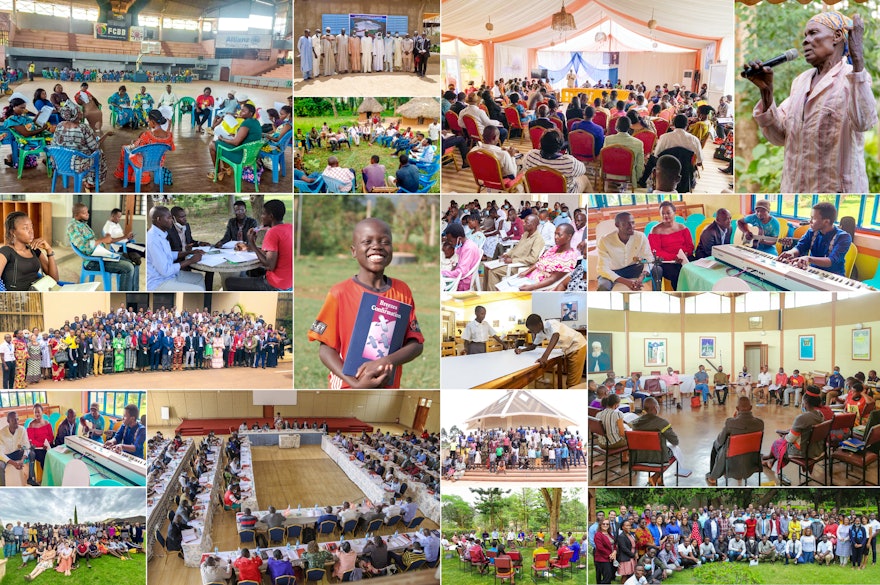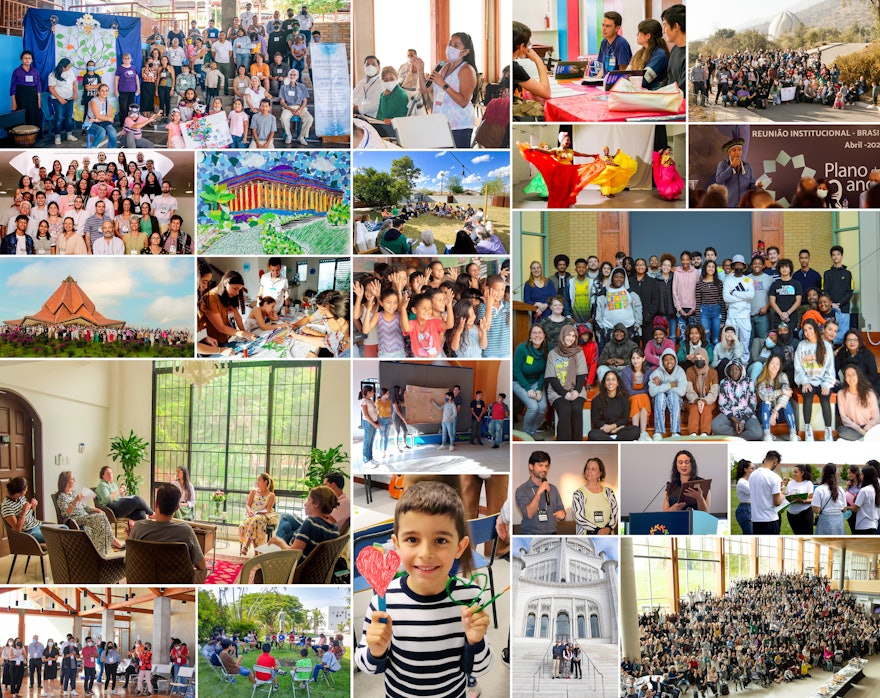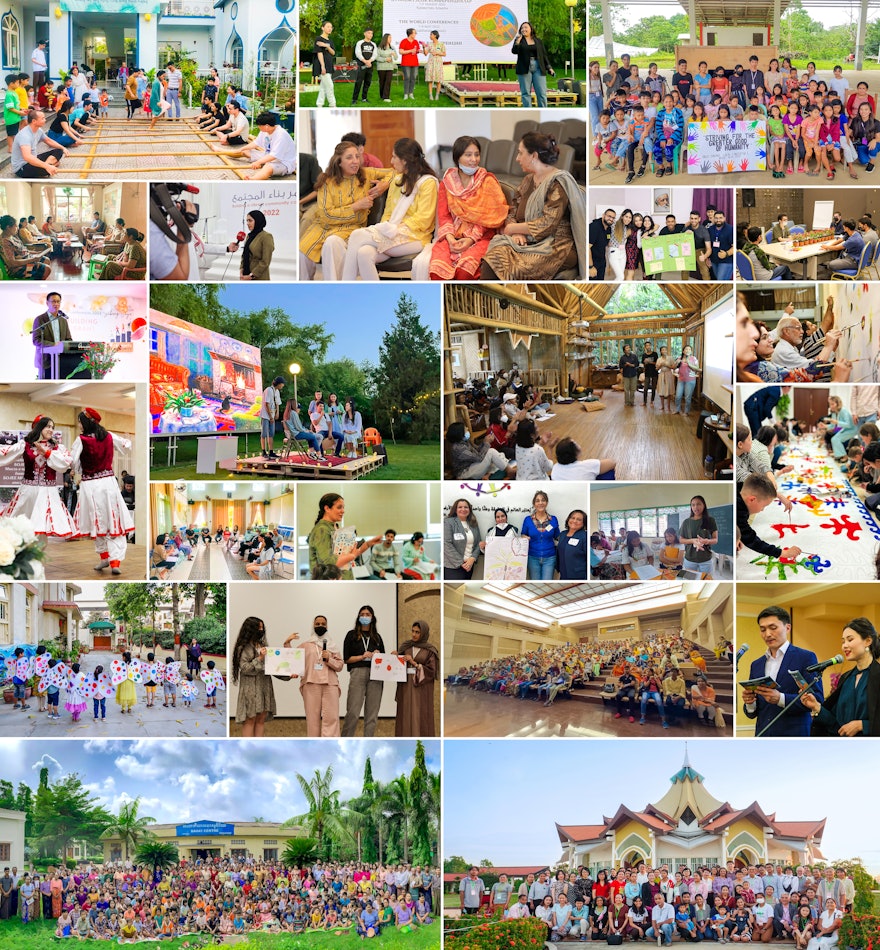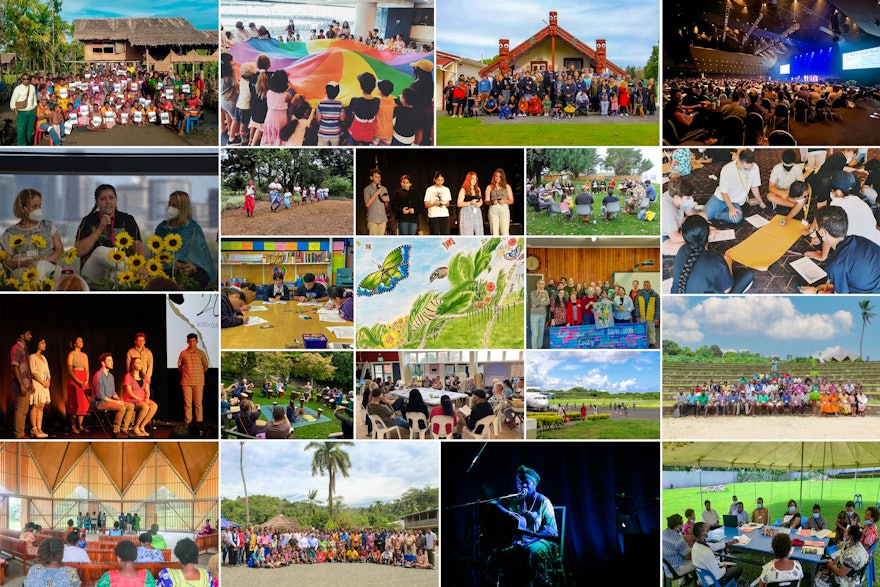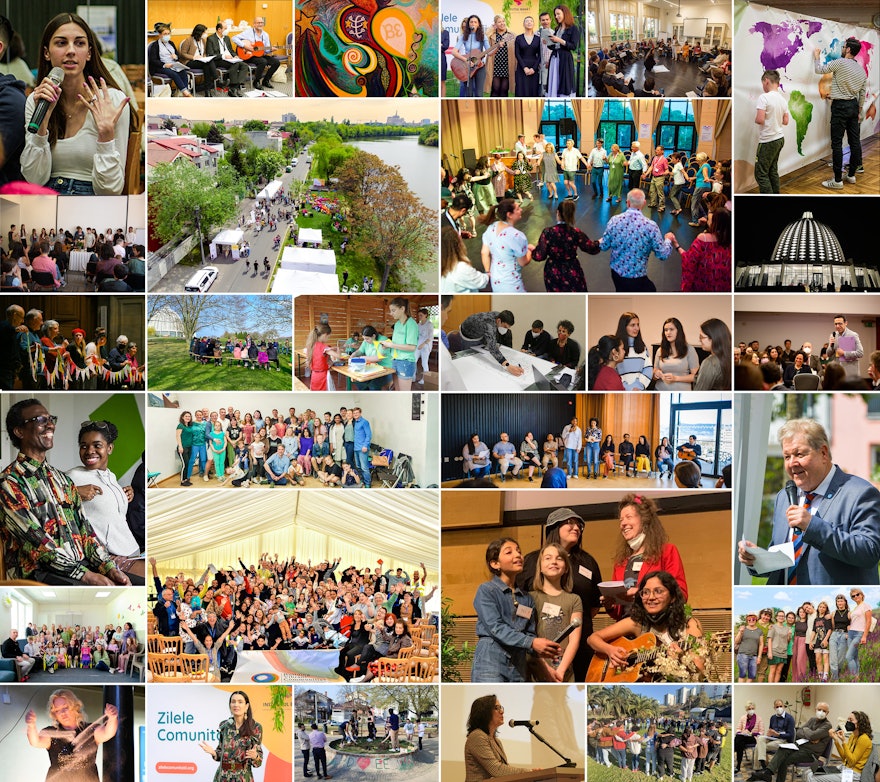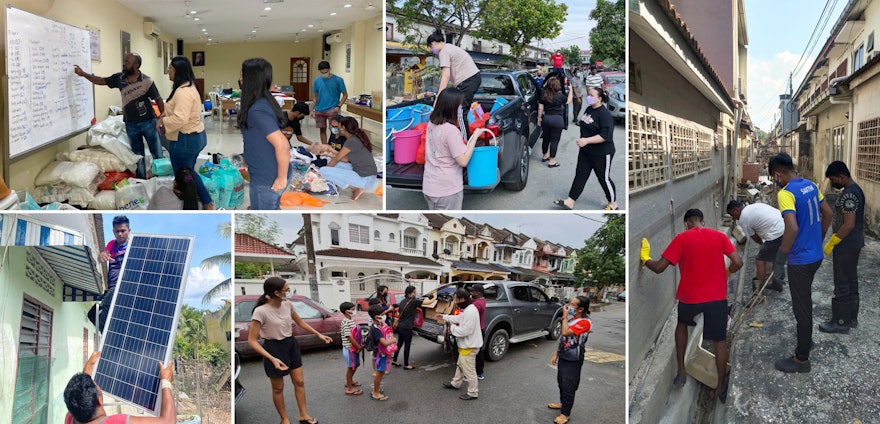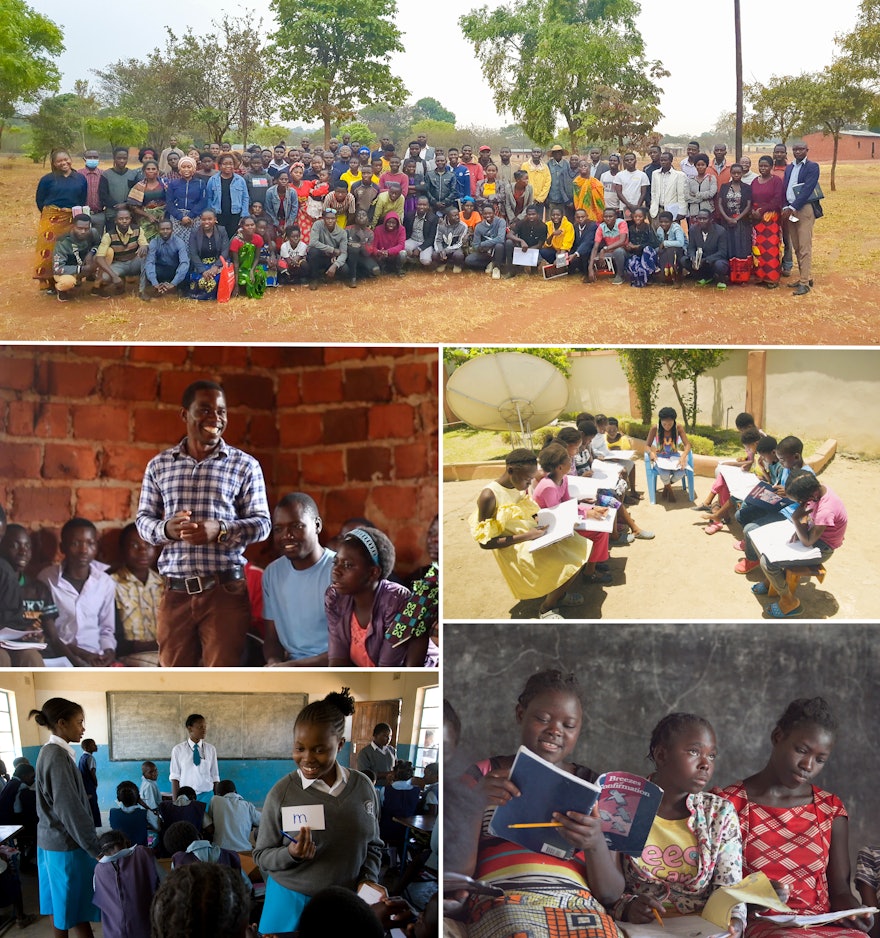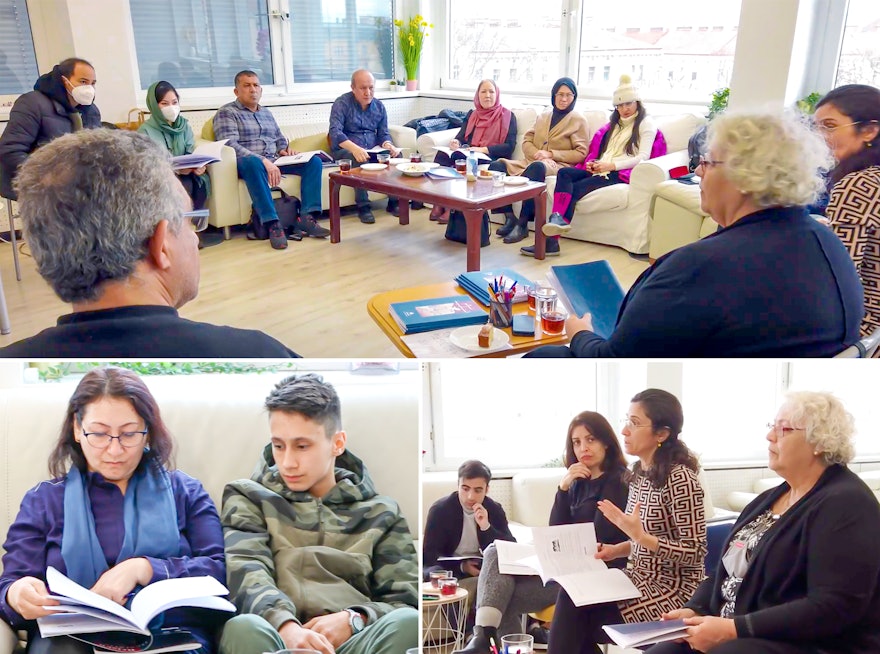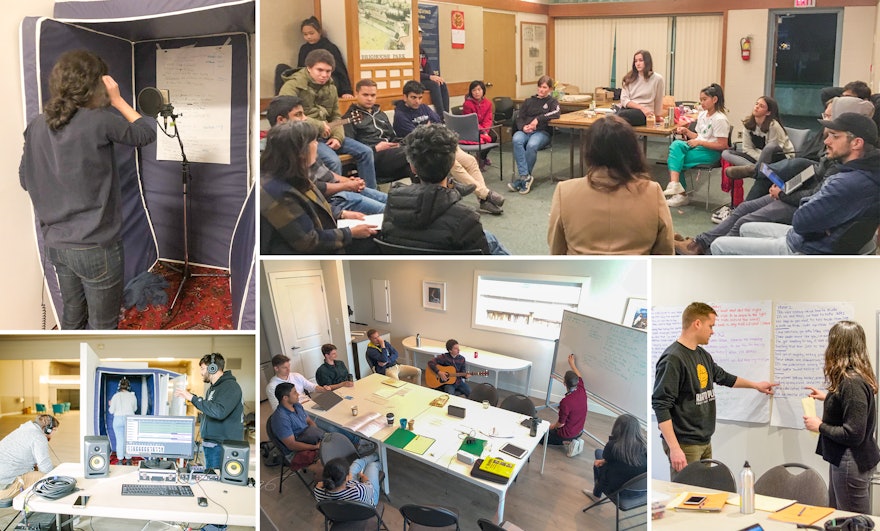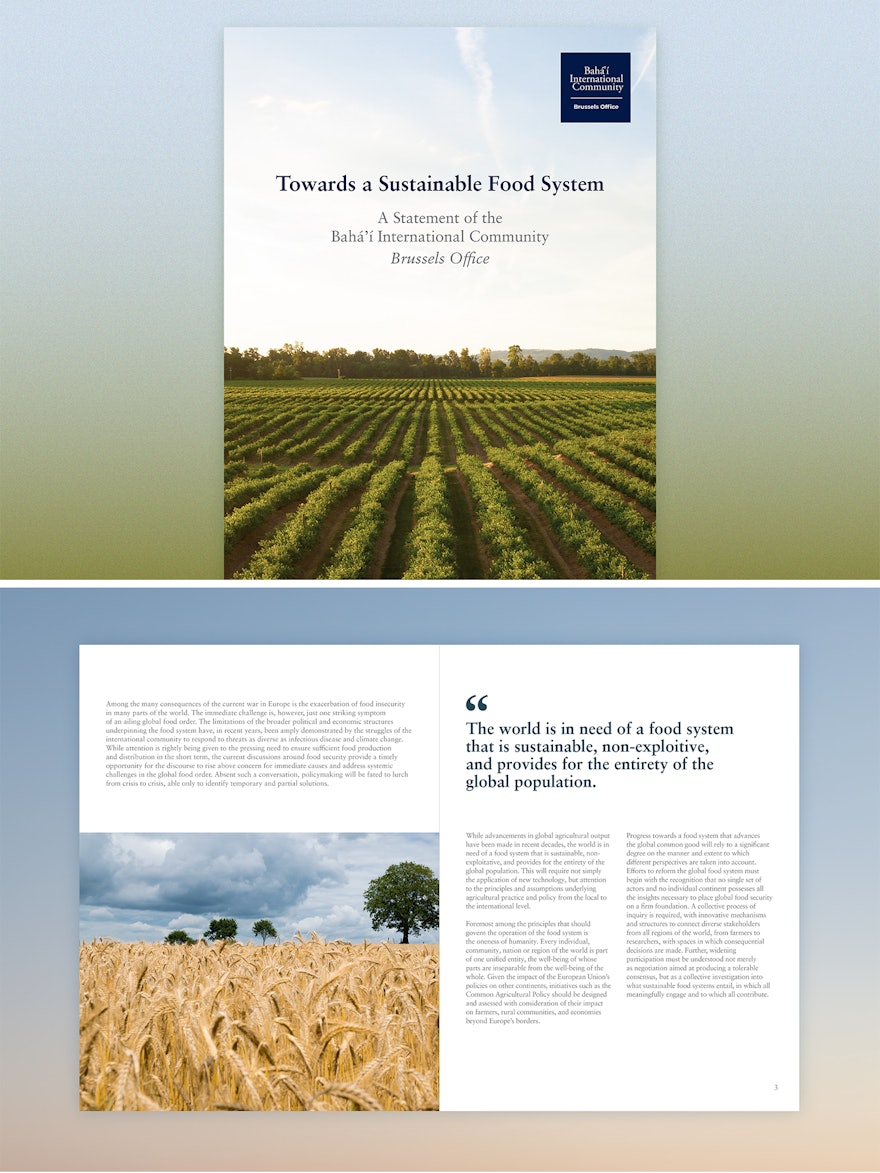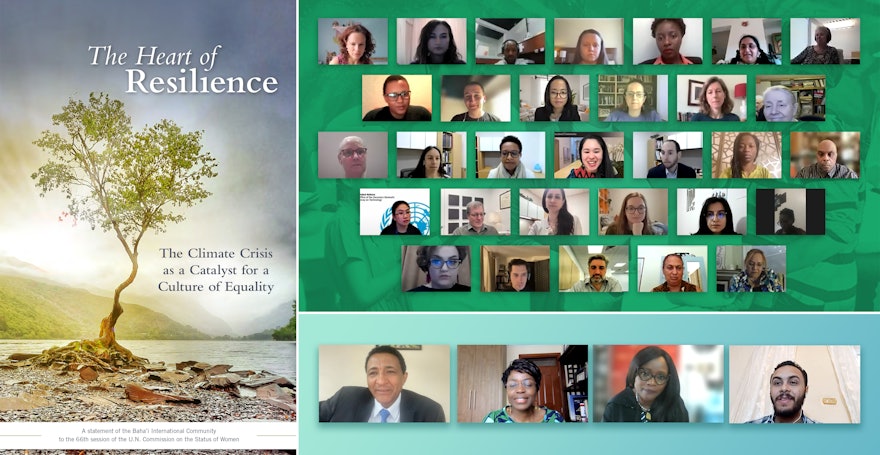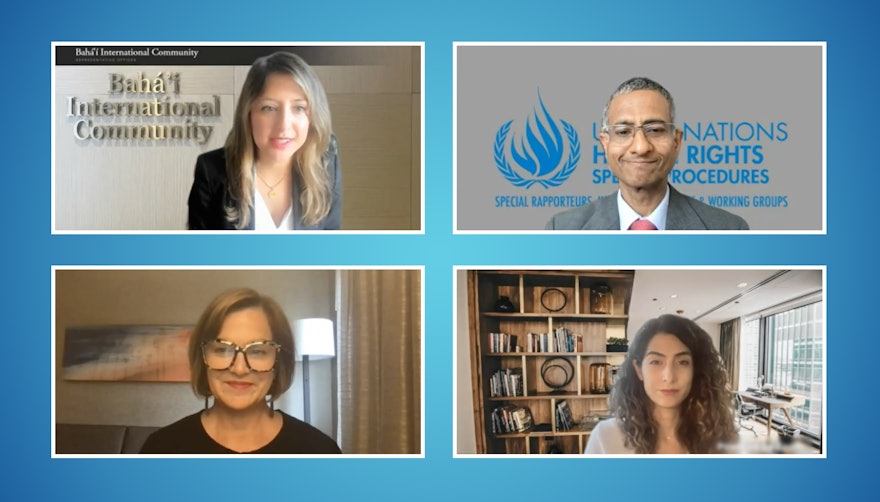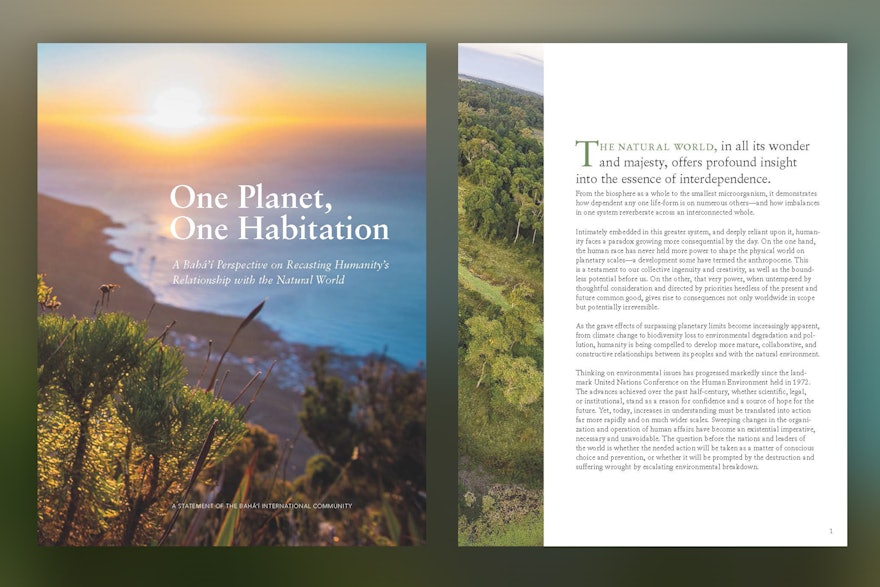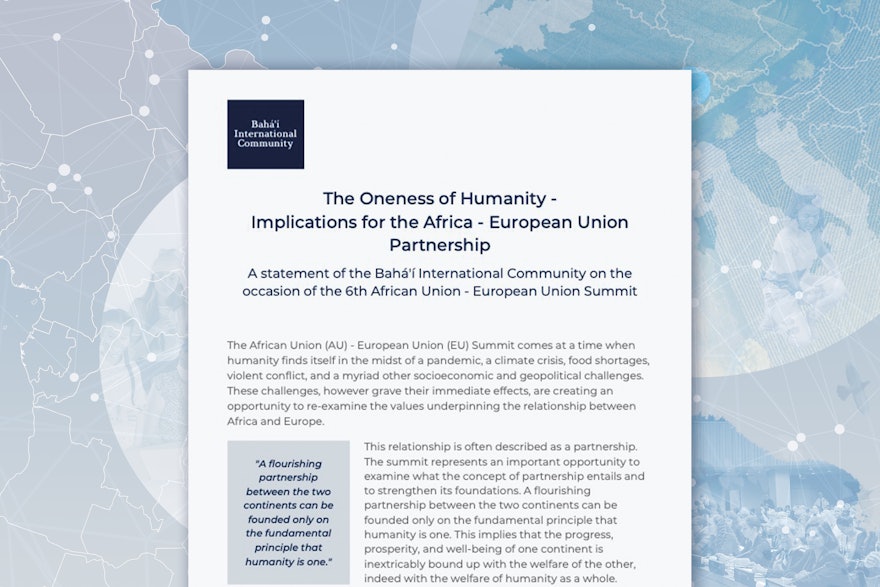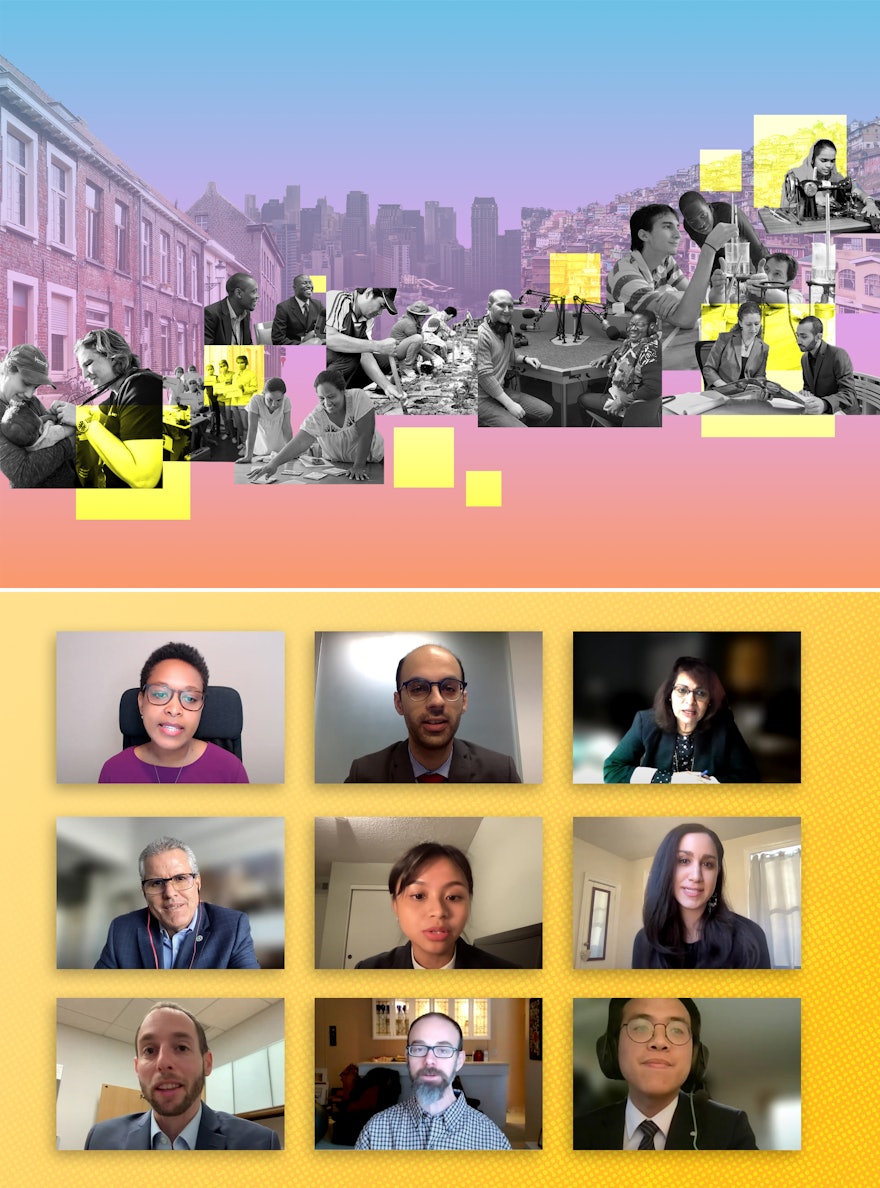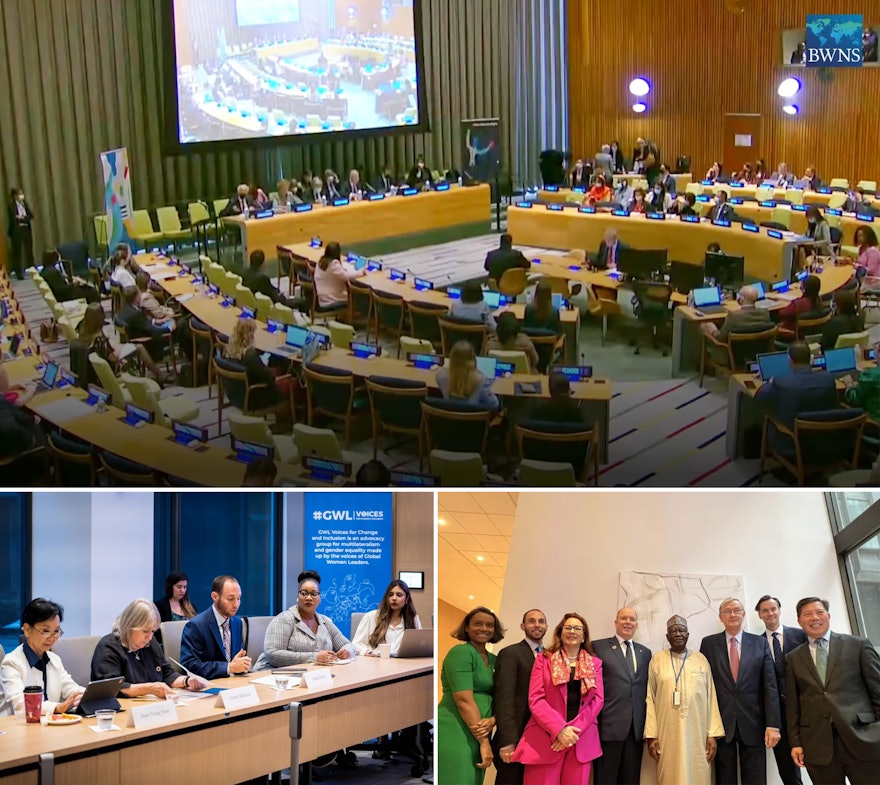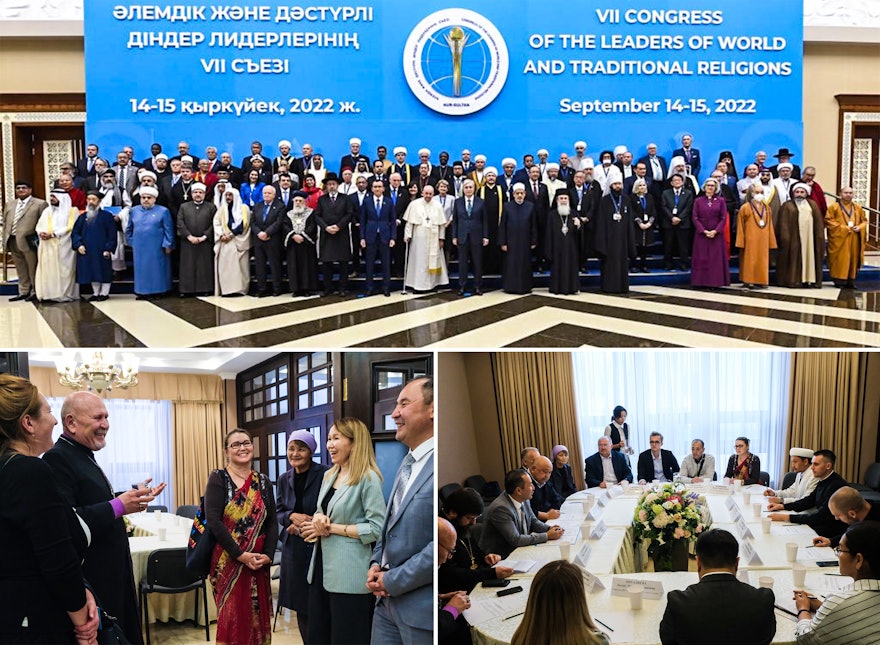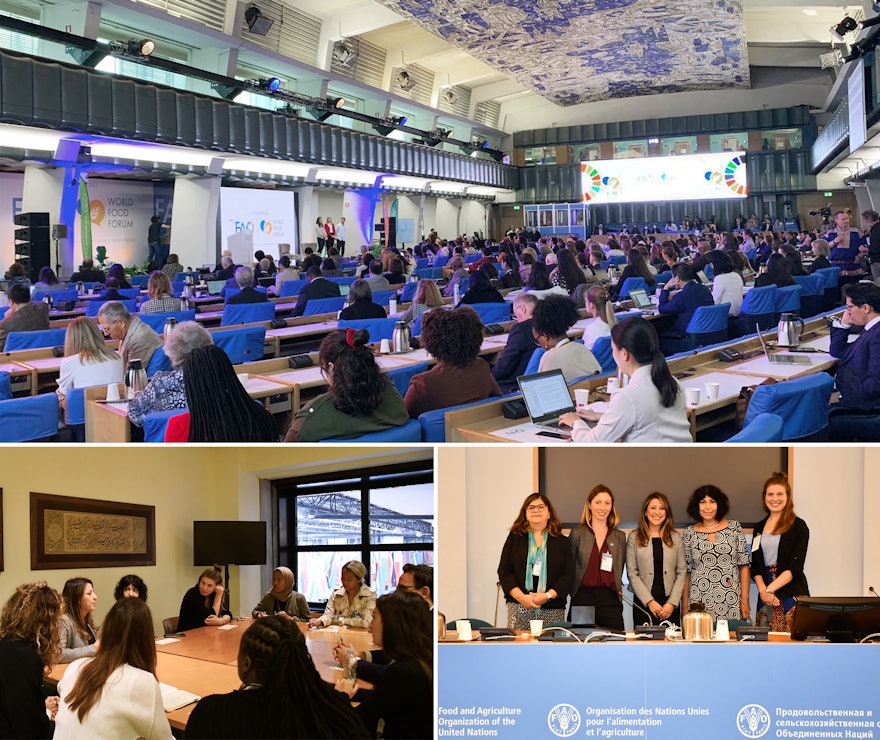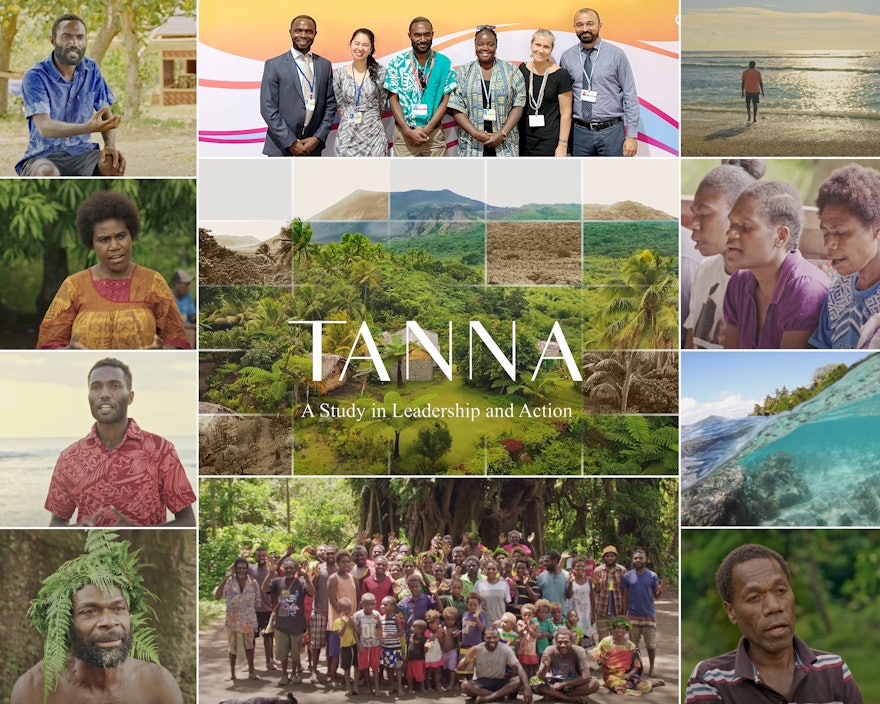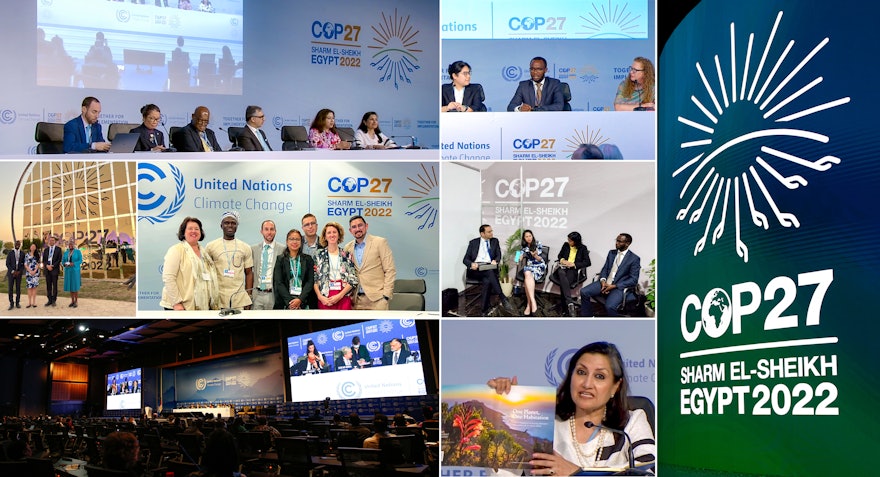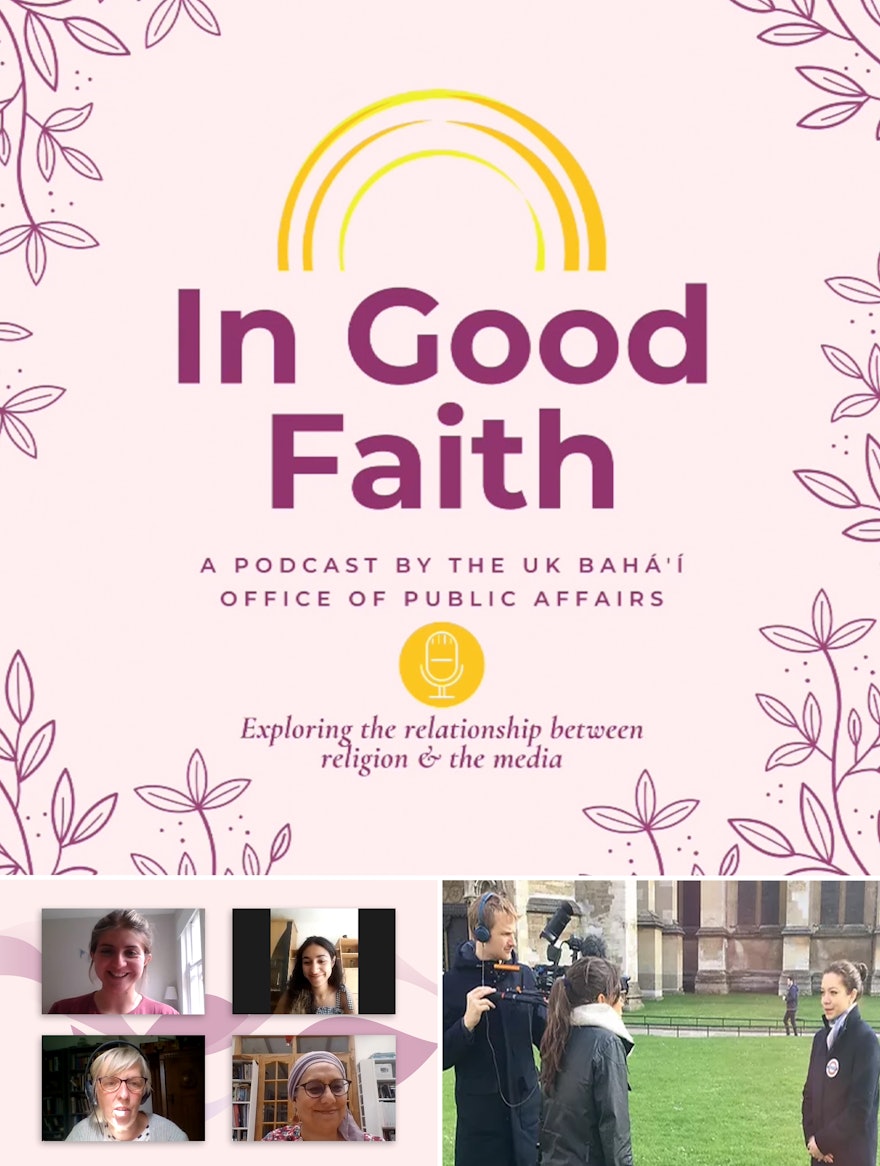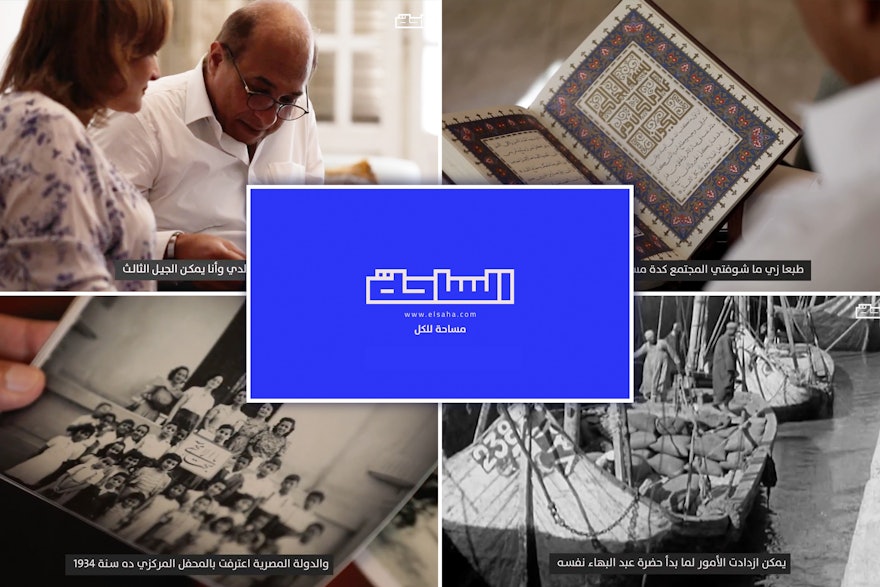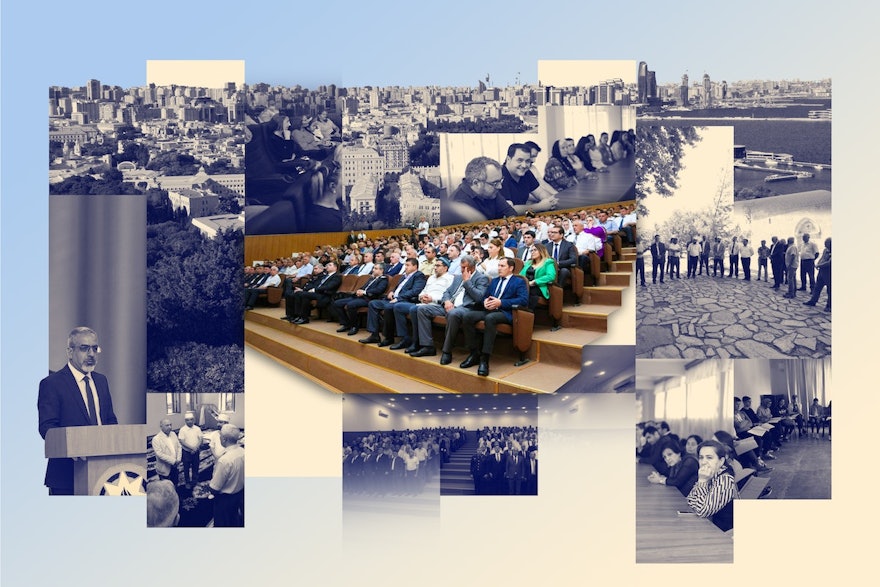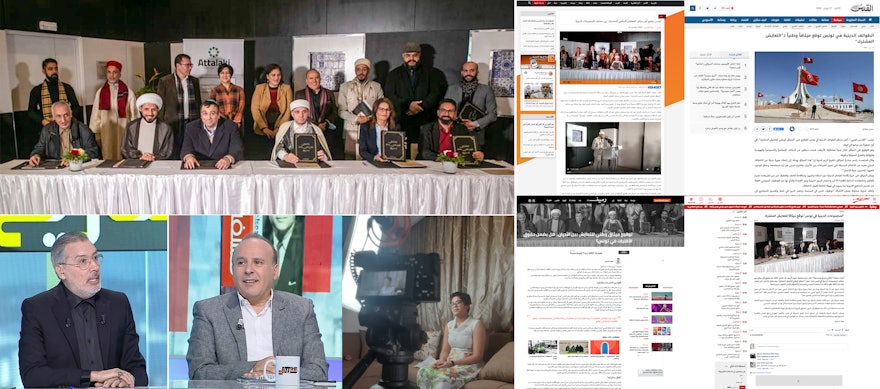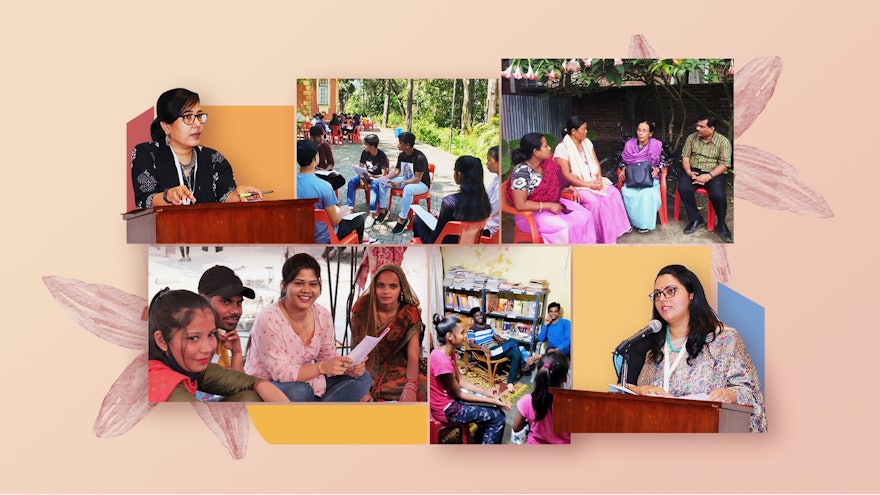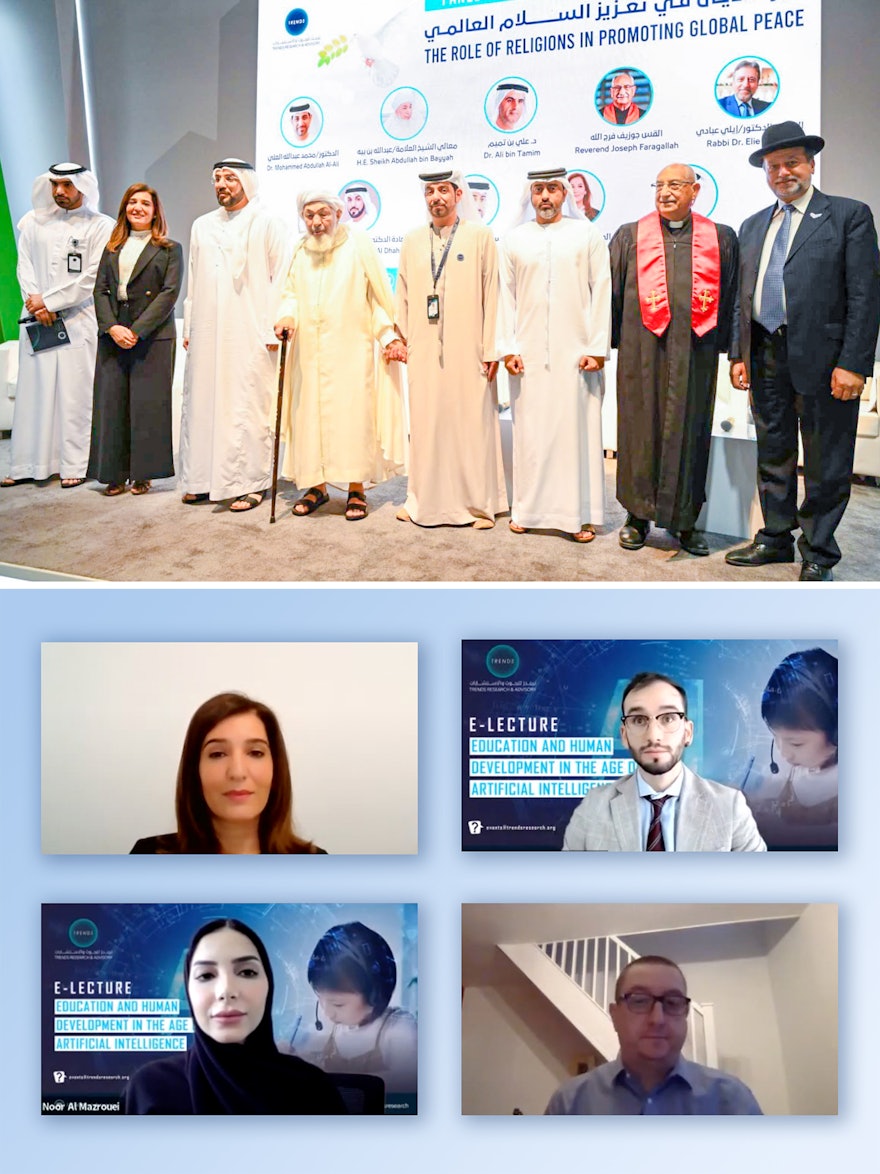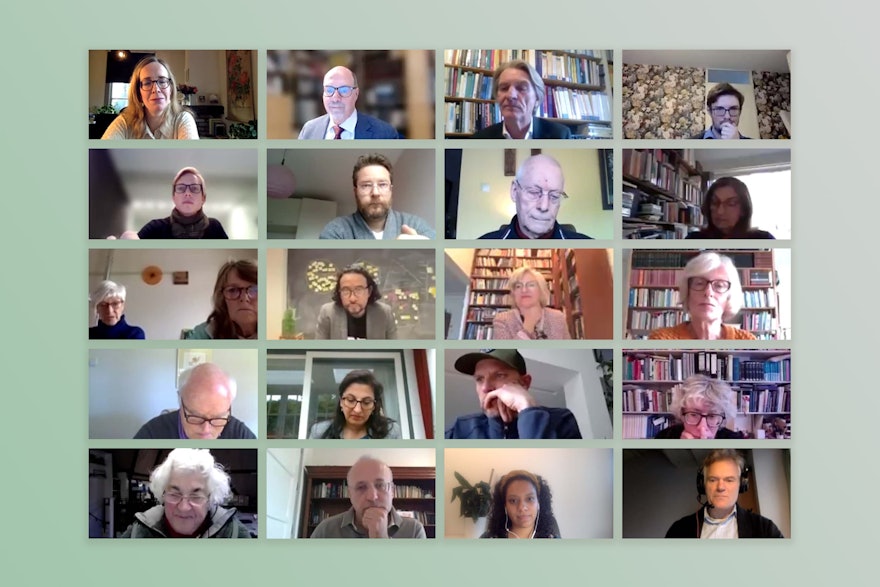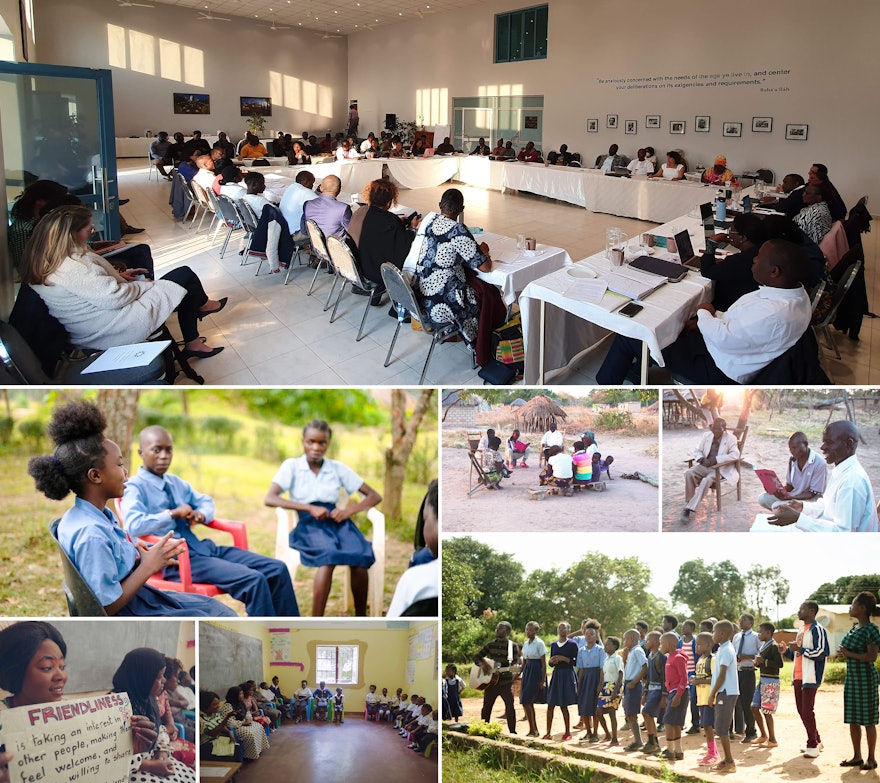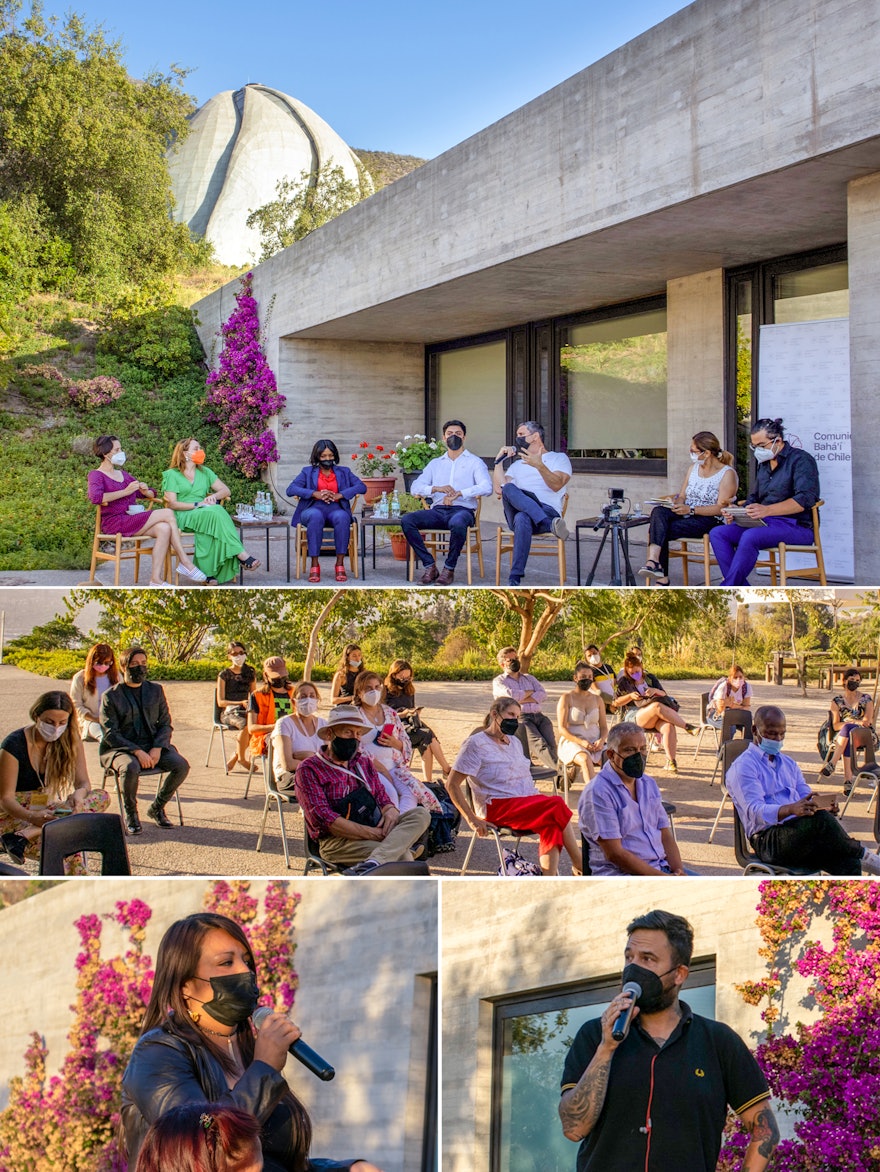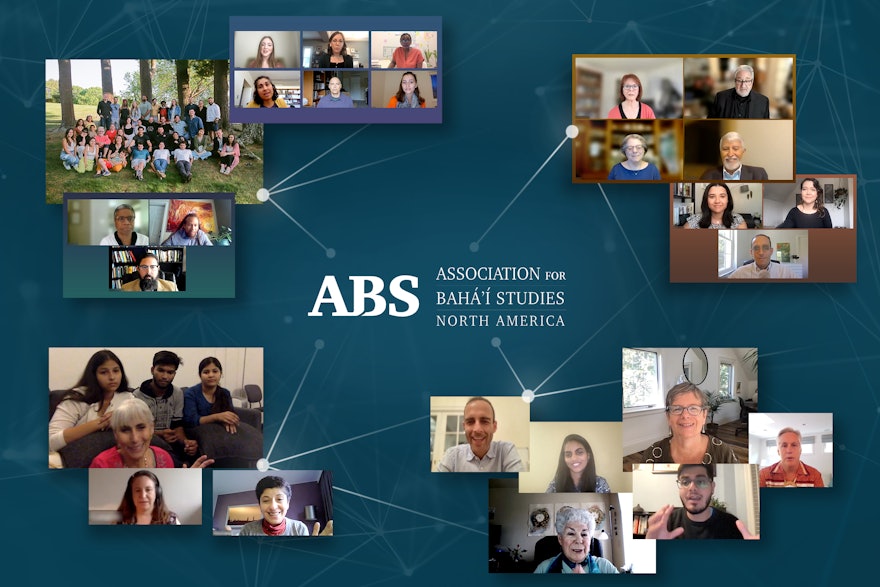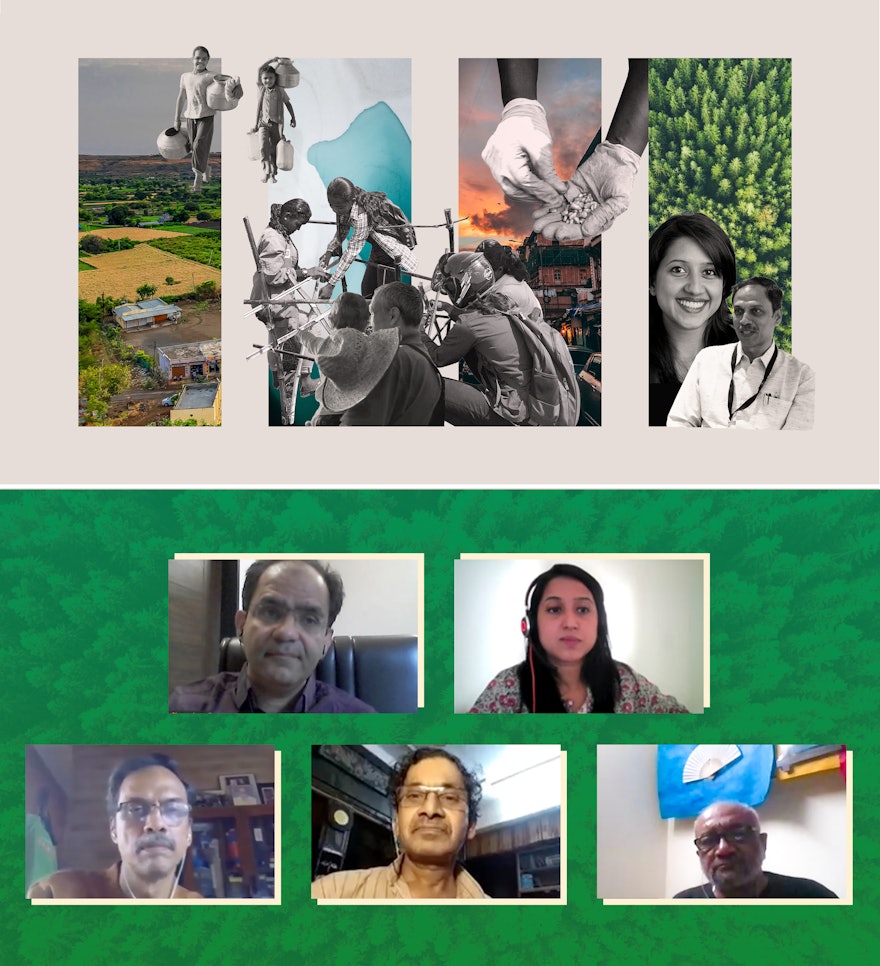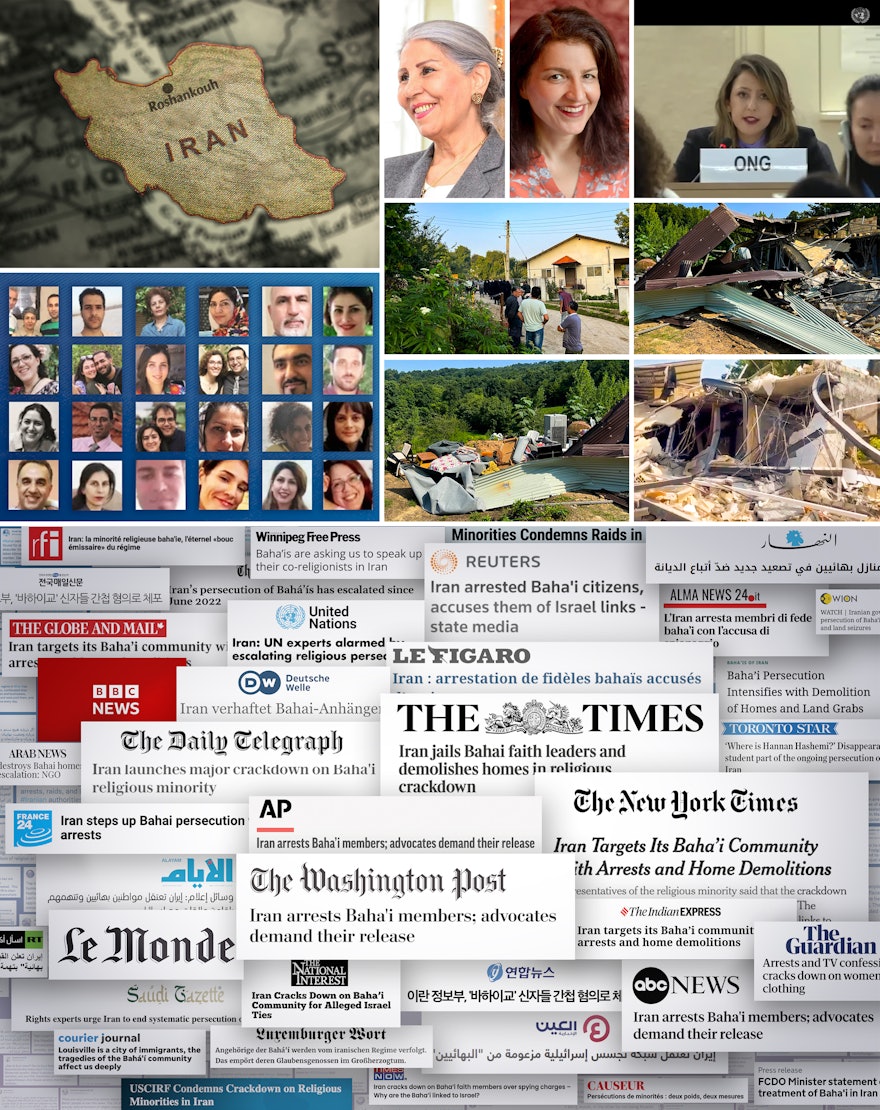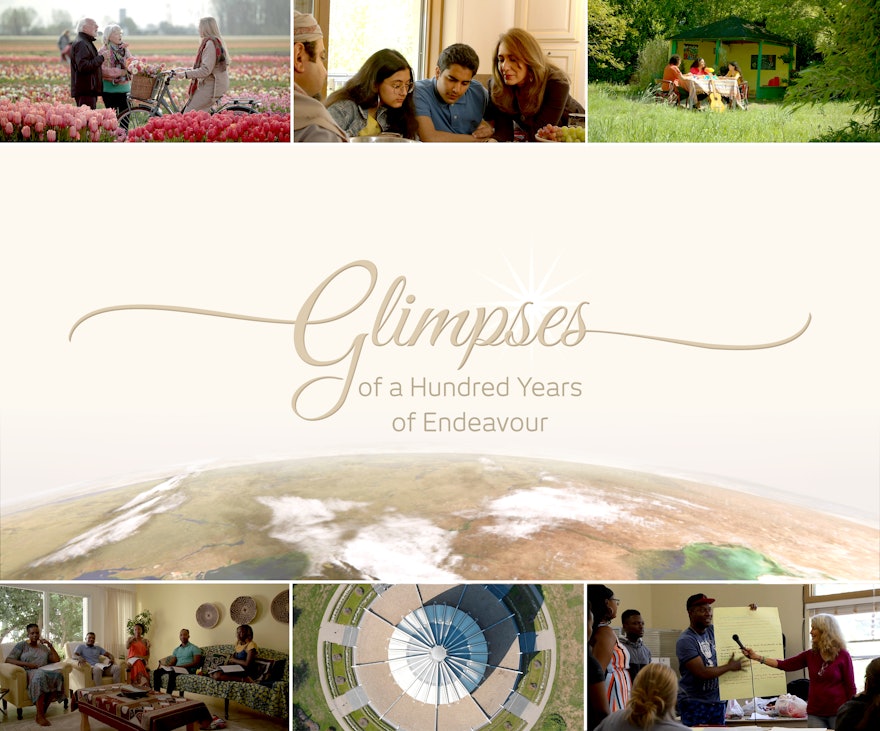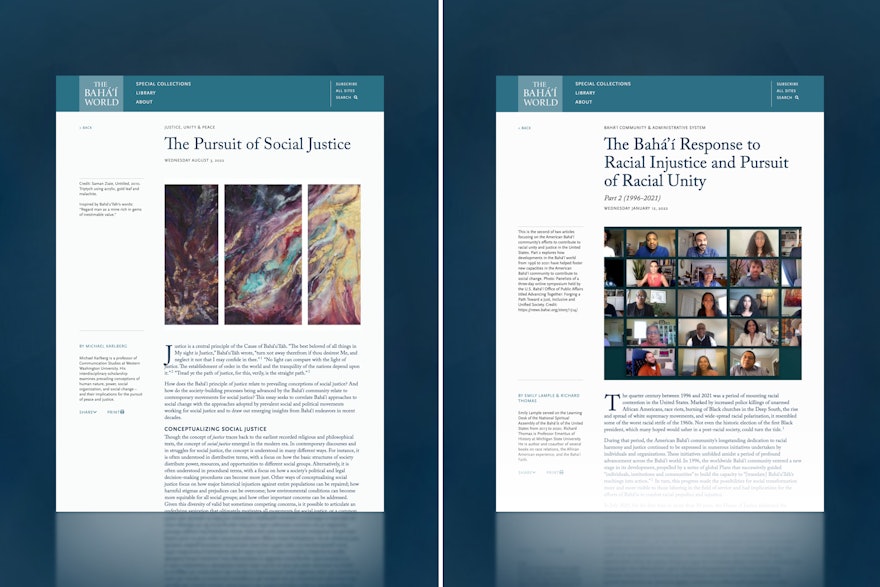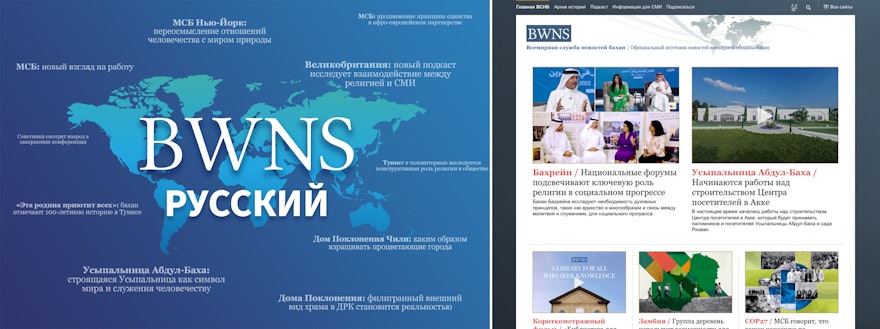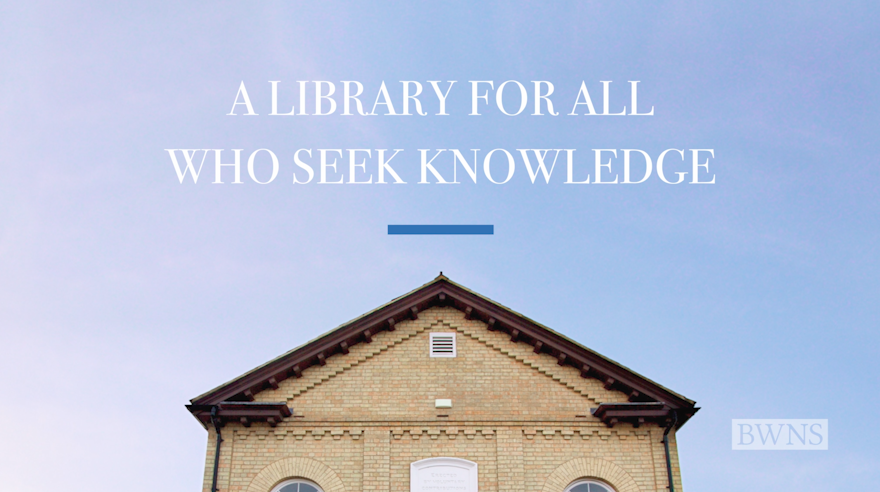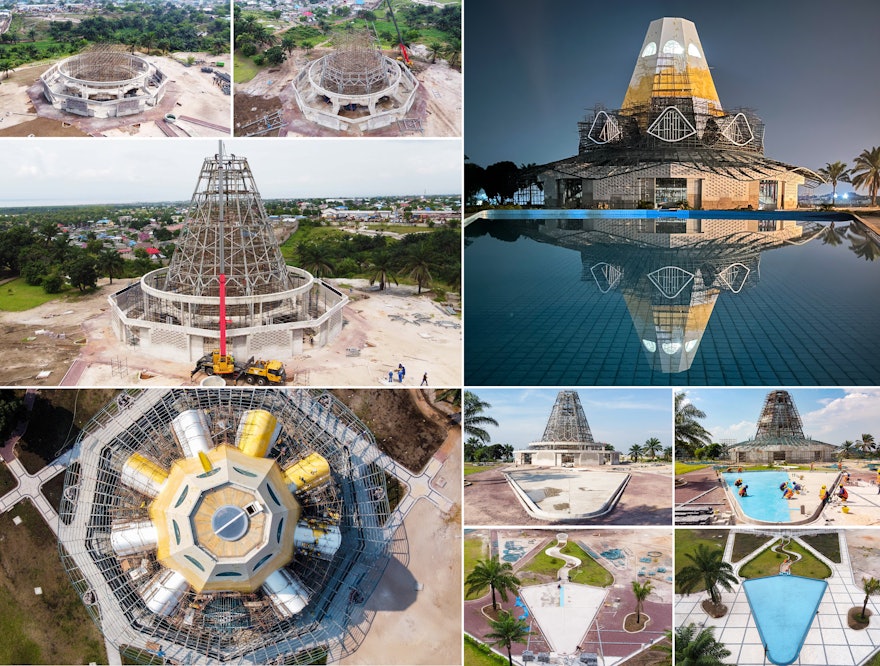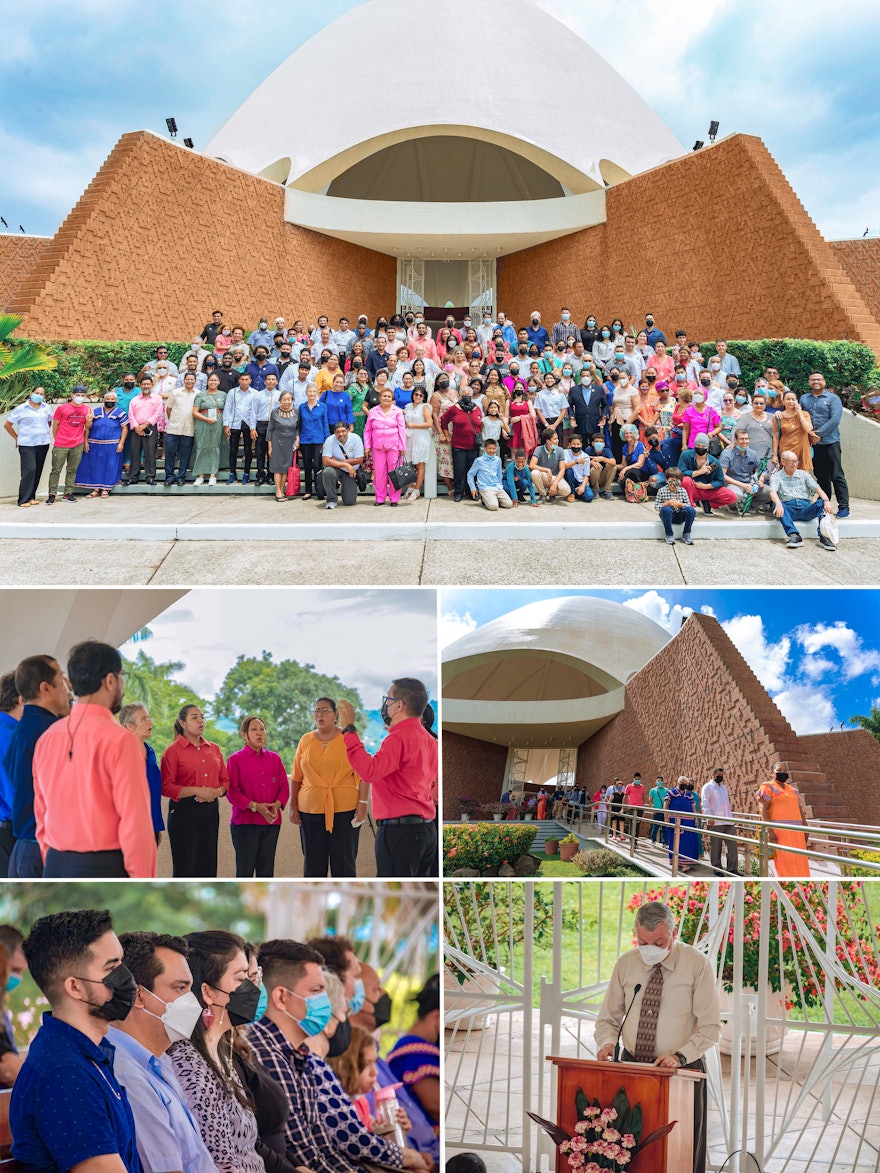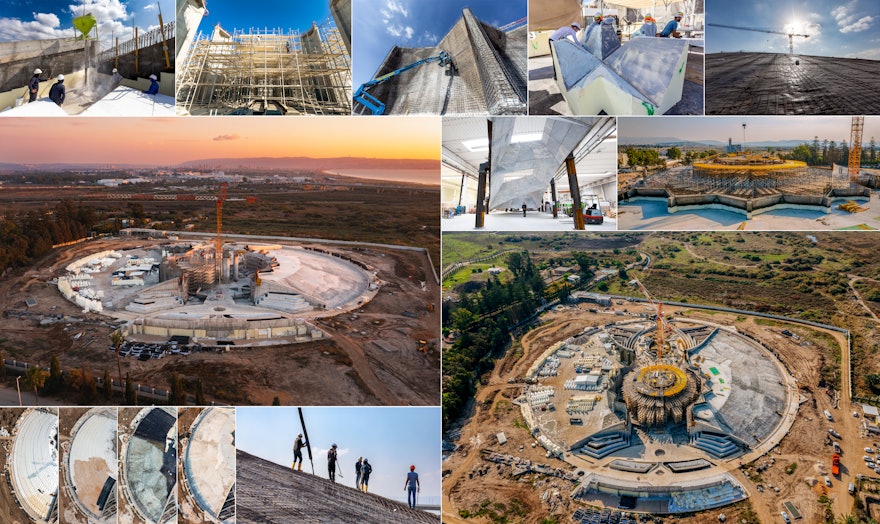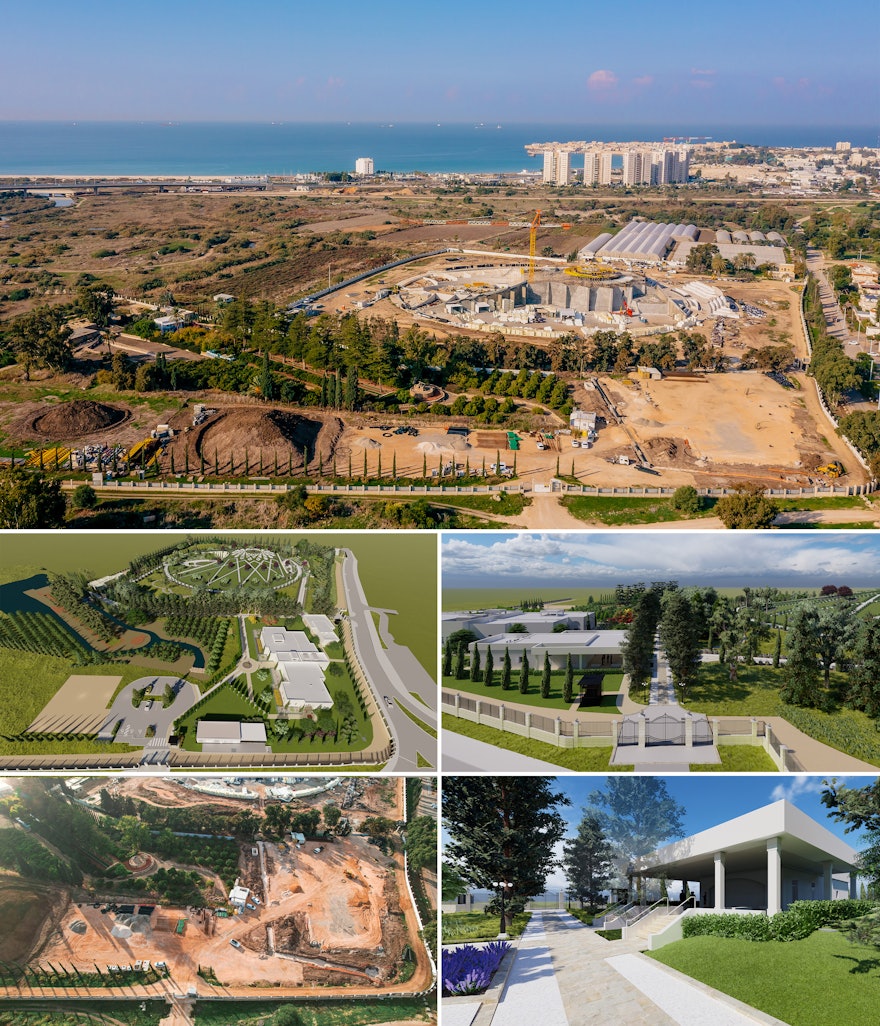2022 Year in Review: The start of a new journey
BAHÁ’Í WORLD CENTRE — The Bahá’í World News Service revisits stories it has covered over the past year, providing a brief overview of efforts made by the global Bahá’í community to contribute to humanity’s efforts to move toward a better world.
Global Conferences
When the first moments of 2022 arrived, the worldwide Bahá'í community was waiting in eager anticipation for a series of global conferences that would launch it into a new phase in its journey. These monumental gatherings would offer individuals, communities, and institutions an opportunity to consult on how Bahá’í efforts to foster social transformation can further intensify in the coming decade.
The pressing need for these conferences was reinforced by the Universal House of Justice in the early days of the year in a message highlighting the principle of oneness, which reads, in part: “The global challenges now facing humanity are a severe test of its willingness to put aside short-term self-interest and come to terms with this stark spiritual and moral reality: there is but one, interconnected human family and it shares one precious homeland.”
Against the backdrop of persistent societal stress and conflict, the conferences swept across the globe over the coming months, enabling countless people to focus their increasing sense of urgency about global challenges into efforts for the progress of their societies.
Conferences at the local, national, and international levels provided Bahá’ís and very many of their friends and neighbors who wish to contribute to this process with insights from experience in Bahá’í community-building activities, initiatives undertaken for social action, and efforts to contribute to prevalent discourses. In many places, conferences stimulated discussion on an overarching theme, such as the role of women in social progress and fostering peaceful societies. Through these discussions, participants found a renewed sense of hope in humanity’s capacity for altruism, feeling connected by bonds of love and fellowship with others in a global effort aimed at social betterment.
A wave of conferences swept throughout Africa, which brought together thousands of people from all backgrounds to consult about how they can contribute to the material and spiritual progress of their communities. In some places, gatherings focused on specific themes. For example, in the Central African Republic, some 500 women joined a discussion in Bangui to explore the role of women in contributing to social progress. A conference in Chad brought together chiefs and religious leaders to discuss how each person can contribute to the realization of collective peace.
Young people featured prominently in conferences throughout the Americas, as they did throughout the rest of the globe. Their discussions and artistic activities centered on building vibrant communities dedicated to the promotion of peace.
Participants in conferences throughout Asia discussed the characteristics of the relationship between individuals, communities, and institutions that are essential for material and spiritual progress. The uplifting environment of these gatherings gave rise to many activities immediately following the conferences. For example, one gathering in India inspired a health promotion campaign aimed at tackling the harmful effects of alcohol consumption on families.
Across Australasia, conferences were enriched by cultural elements, such as storytelling, musical plays, and traditional dance, which highlighted spiritual principles required for promoting harmonious societies.
In Europe, people from all walks of life found that the consultations at these vibrant gatherings harmonized different points of view in the pursuit of plans that apply spiritual principles to issues and challenges facing their societies.
In Bucharest, Romania, one conference sectioned off a city street for a community festival that welcomed local officials. In her remarks at the gathering, Mayor Clotilde Armand stated, “To a mayor, what you are doing here is like bread and honey. I’m happy you are taking advantage of this open space to create a community event.”
Pursuing social and economic development endeavors
This past year, the News Service covered a variety of stories on Bahá’í social and economic development initiatives.
Following severe flooding, participants of Bahá’í community-building activities immediately channeled their focus toward relief efforts.
In Zambia, consultations about Bahá’í educational programs cast light on the growing capacity in the villages of Katuyola to address complex challenges associated with the education of young people.
An initiative of the Bahá’ís of Austria offered German language classes for newly arrived families, enabling diverse people to overcome prejudices.
In Canada, young people participating in Bahá’í community-building activities explored how music can inspire high aspirations and actions at the betterment of society.
Participating in the discourses of society
The News Service also reported on the efforts of the Bahá’í International Community and national Bahá’í communities worldwide to contribute to the advancement of thought on many issues of pressing concern.
The BIC released a statement exploring how the principle of the oneness of humanity could offer insights into efforts for improving global food security.
The BIC participated in a number of discussions on climate change and its disproportionate impact on women. A BIC statement highlighted the principle of the equality of women and men as essential to processes of governance that aim to foster climate resilience.
The Geneva Office of the BIC hosted a panel at the RightsCon summit, emphasizing the need for a shared vision among the technology sector, government, and civil society organizations in order to tackle online hate speech.
The BIC released a statement on the occasion of Stockholm+50, addressing the root causes of environmental breakdown and highlighting principles and proposals for action.
The Brussels and Addis Ababa Offices of the BIC released a joint statement to EU leaders, calling for recognition of the principle of oneness in Africa-European Union partnerships.
The BIC hosted a discussion forum which explored some principles relevant to re-envisioning the future of work, such as unity, justice, collaboration, selflessness, and consultation.
During the High-Level Week of the 77th session of the United Nations General Assembly, representatives of the BIC New York Office emphasized the need for a shared identity based on the principle of the oneness of humanity.
Religious leaders from around the world gathered at the 7th Congress of Leaders of World and Traditional Religions in Astana, Kazakhstan, to discuss the role of religion in contributing to social progress in a post-pandemic world.
The BIC hosted a panel discussion at the United Nations Food and Agriculture Organization (FAO) headquarters to examine the role of education in addressing the challenges facing young small-scale farmers in rural areas.
The BIC produced a short film about a coral reef restoration project led by young people in Tanna, Vanuatu. The 13-minute film, titled “Tanna: A Study in Leadership and Action,” was screened at COP27.
Delegations from multiple BIC Offices attended the COP27 climate summit in Egypt.
The Bahá’í Office of Public Affairs in the United Kingdom launched a new podcast series called “In Good Faith,” which explores the relationship between religion and the media.
A short film produced by Elsaha, an online news service based in Egypt, offered a perspective on the experience of the Bahá’í community in that country, from its beginnings in the 19th century to the present day.
The first national conference on fostering coexistence in Azerbaijan brought together officials, representatives of diverse faith communities, civil society leaders, academics, and journalists to discuss the principle of unity in diversity.
In Tunisia, a representative of the Bahá’í Office of External Affairs explored the role of religion in society in a national television program. This year also saw diverse faith communities of that country signing a pact, expressing their commitment to a more peaceful society.
The Bahá’í Office of Public Affairs of India hosted several forums that looked at the application of the principle of the equality of women and men to different societal discourses.
The Bahá’ís of the UAE explored insights from experiences in promoting a dialogue about the constructive role of religion in contemporary society.
The Dutch Bahá’í Office of External Affairs drew on experiences in Bahá’í community-building activities as part of its contributions to the discourse on racial unity.
After decades of effort, Bahá’í institutions in Zambia gathered to examine how the range of Bahá’í educational initiatives in that country could be developed to offer a seamless, coherent experience from early childhood into adulthood.
A play staged by the Bahá’ís of Austria explored the connection between Táhirih, a Bahá’í heroine, and Marianne Hainisch, founder of Austria’s women’s movement, as part of their efforts to contribute to the discourse on the equality of women and men.
Representatives of the Bahá’í community of Chile and civil society leaders gathered at the Bahá’í House of Worship in Santiago to explore spiritual principles that can guide the development of cities for the well-being of all.
The Association for Bahá’í Studies (ABS) held its 46th annual conference, which brought together over 1,000 people from more than 30 countries to reflect on how the Bahá’í teachings can contribute to various areas of thought and discourse.
The Bahá’í Chair for Studies in Development at Devi Ahilya University, Indore, hosted a forum on the principles needed to bring humanity into greater balance with the natural world.
Persecution of the Bahá’ís in Iran
Over the past year, the persecution of the Bahá’ís of Iran has intensified, escalating in the summer with a wave of arrests and the violent destruction of Bahá’í homes in the village of Roshankouh. This crackdown was immediately followed by an outpouring of statements from government officials and news coverage by international media outlets, demanding an end to the injustice.
Just weeks after these incidents and amid increasingly violent and repressive actions by the Iranian authorities against their own citizens, two Bahá’í women regarded as symbols of resilience in Iran after spending 10 years in prison, were sentenced to a second cruel 10-year imprisonment.
Supporters of the two women have called them symbols of resilience, confidants of other oppressed and jailed individuals, and mothers to all Iranian women.
Publications
The last year saw several online publications.
A film commissioned by the Universal House of Justice provided glimpses of the Bahá’í community’s efforts over the past century to contribute to fostering a more peaceful world.
New articles on Bahá’í World website explored the pursuit of social justice.
The Bahá’í World News Service was made available in Russian, joining the English and three other language-versions of the site.
A short documentary looked at the Afnan Library and its outstanding collection of over 12,000 items related to the Bahá’í Faith and other broadly connected subjects.
Bahá’í Houses of Worship
Over the past year, the News Service reported on stories on how Bahá’í temples have been contributing to the devotional character of nearby communities. These temples have been inspiring people to reflect about how they can serve their fellow citizens. News coverage of Houses of Worship also included stories on progress in the construction of the temples in the Democratic Republic of the Congo and Papua New Guinea, as well as the fiftieth anniversary of the dedication of the Bahá’í temple in Panama.
Construction of the Bahá’í House of Worship in the Democratic Republic of the Congo continued to advance, including the completion of steel superstructure for the dome.
The emerging Bahá’í House of Worship in Papua New Guinea—representing the union of worship and service—inspired nearby residents to assist with a weaving project as part of the construction of that temple.
The Bahá’í House of Worship in Panama celebrated 50 years since its inauguration.
Construction of the Shrine of ‘Abdu’l-Bahá
Despite the setback caused by a fire on the site, progress continued to be made on the construction of the Shrine of ‘Abdu’l-Bahá. Another development this year was the start of work on the ‘Akká Visitors’ Centre.
